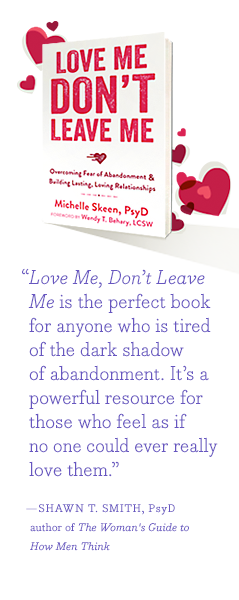Foreword by Wendy T. Behary, LCSW
President International Society of Schema Therapy (ISST)
Author, Disarming the Narcissist (2013)
I have found, over the years, that some of the most profoundly upsetting moments emerging in the treatment room are related to a client who is in the throes of a real or anticipated loss of his or her significant other—the romantic partner. The intensely painful emotional distress linked to such a meaningful rupture can produce, for some, unbearable feelings of abandonment, betrayal, manipulation, and emotional deprivation. The feelings can shift, at times, into problematic and self-defeating coping behaviors such as unremitting self-blame, intractable subjugation of the client’s needs and rights, rigid avoidance, hypervigilant clinging to the partner, tireless suspicions, ruminations about repair or retaliation, and, at worst, intense states of depression, anxiety, or possible self-harm.
This is especially challenging for those who have also endured a childhood and long-standing history fraught with experiences of loss, neglect, or abuse, as well as feeling unlovable, undesirable, or just not good enough. The coping styles—often constructed early in our development, when critical emotional needs are unmet—along with our biological makeup can become imbedded in our brain’s survival system, acting as automatic navigators when faced with a perceived threat. Under certain conditions, like being cast aside by a partner, those once-upon-a-time intolerable feelings of loneliness, shame, inadequacy, abandonment, rejection, or mistrust can get triggered. This can result in the rapid activation of coping styles that, although perhaps somewhat helpful in early life, are now ironically self-defeating and even perpetuate further feelings of painful despair—as you will see so thoughtfully portrayed in this beautiful book, written by Michelle Skeen.
In my work treating narcissists, it is not uncommon for me to meet the narcissist’s partner—the offended other—who, in addition to being made to feel inferior and unlovable, is continuously threatened with losing the (albeit sometimes charming) overpowering and devaluing offender. If she (in this case) has also been plagued with early experiences of mistreatment by her caregivers, or abandonment, the anticipation of a loss of this magnitude in her grown-up life might carry forth a more than reasonable degree of dread and sorrow linked to feelings and beliefs such as: “It’s devastating. …It just reinforces the rightness of my critical mother who all my life reminded me that nothing I did was ever good enough.” “Maybe I deserve it—all that teasing and bullying I endured from my siblings [or peers] because I was inhibited or… because I was smart or…because I wore glasses…maybe this is just the true story of my life.” She says this with a tear-stained face and shattered heart.
I am absolutely delighted that my dear friend and colleague, Dr. Michelle Skeen, has written this outstandingly important body of work. Michelle has been a keen and enthusiastic schema therapy practitioner and educator. And now, with her elegant style and clear, accessible exercises, she brings illumination to this subject for so many who know the unfortunate experience of abandonment and the burdens of perceived loss. Dr. Skeen has devoted many years to her clinical expertise in relationship issues. With the schema therapy approach (an
evidence-based treatment model), she offers the reader a thoughtful, unequivocally instrumental guide for engaging healing, effective strategies that can lead to changing automatic and destructively biased life patterns.
In a masterful voice the author describes how to apply the skill of mindful awareness for pattern identification, along with experiential techniques for forging a compassionate bond with the inner struggle of vulnerable parts of the self. Dr. Skeen delves into the cognitive and behavioral strategies for unburdening the heart and adapting the biases of thought, emotion, and action. You will surely resonate with the case examples and vignettes offered, including the unique and commonly shared burdens of dealing with inner messages of shame, mistrust, inadequacy, and, most especially, abandonment.
It is with pleasure that I confidently recommend Love Me, Don’t Leave Me to anyone who is struggling with not only the dreaded and fearful anticipation of being abandoned by a partner, or coping in the aftermath of loss, but also for those of you who may have misplaced along the way (or have not yet been rightfully awarded) your most powerful comrade and unparalleled “truth teller”—the healthy voice of YOU!

